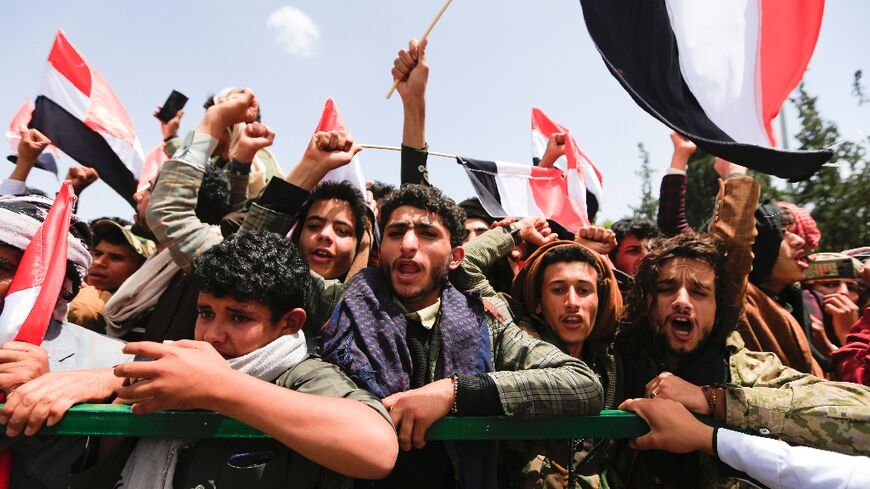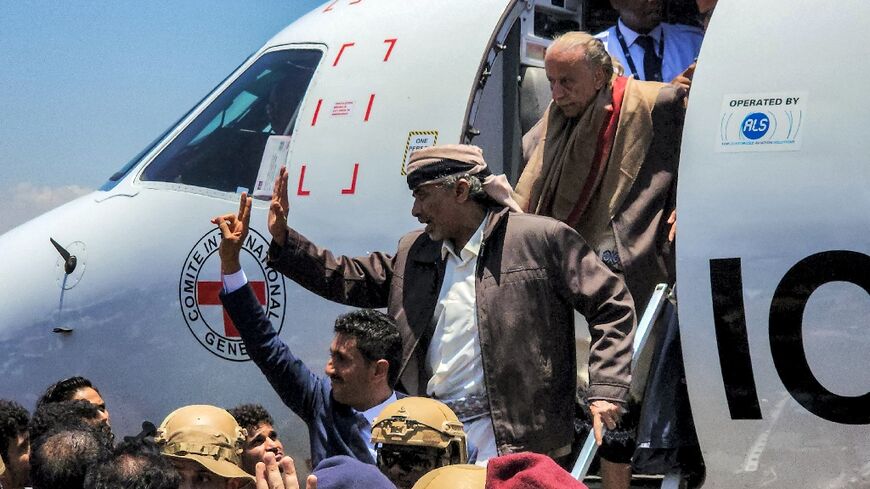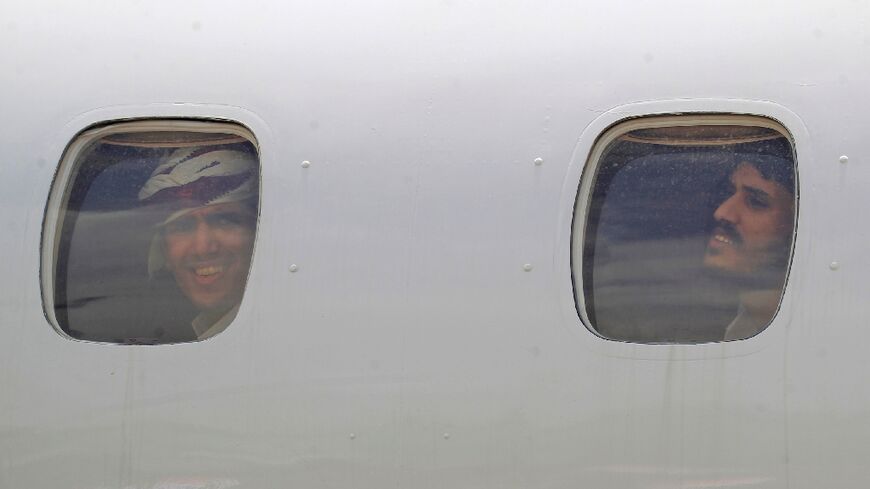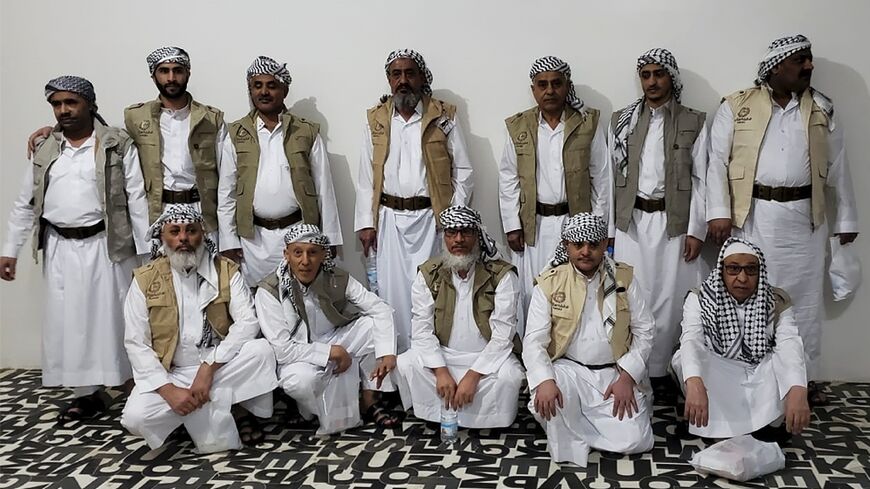Saudis among hundreds of Yemen POWs freed on day two of swap

Hundreds of prisoners of war, including Saudis, were freed Saturday as part of a cross-border exchange between a Saudi-led military coalition and Yemen's Iran-backed Huthi rebels, the International Committee of the Red Cross said.
The flights connecting Saudi Arabia and Huthi-held territory in Yemen were part of a multi-day transfer involving nearly 900 detainees, and came amid peace talks which have raised hopes for an end to Yemen's eight-year-old war.
Saturday's first flight left the southern Saudi city of Abha for Yemen's Huthi-held capital Sanaa with 120 Huthi rebel prisoners, ICRC public affairs and media adviser Jessica Moussan said.
It was followed by a flight from Sanaa to Riyadh carrying 20 former detainees, among them 16 Saudis and three Sudanese, according to the state-affiliated Al-Ekhbariya channel.
Sudan is part of the Saudi-led coalition and has provided ground troops for the fighting.
The Sanaa-Riyadh flight also included a brother and son of Tareq Saleh, a member of Yemen's Presidential Leadership Council and nephew of ex-president Ali Abdullah Saleh.
Other flights Saturday included a second Abha-Sanaa leg with 117 Huthis on board, and three more carrying a combined 100 Huthis to Sanaa from the government-held Yemeni town of Mokha.
- 'Taste freedom'-
Detainee Abdullah Hashem, who spent seven and a half years in a Saudi prison, was embraced at Sanaa airport by his mother.
"I can finally taste freedom after imprisonment," Hashem said.
On Friday, 318 prisoners were transported between government-controlled Aden and Sanaa, reuniting with their families ahead of next week's Muslim holiday of Eid al-Fitr.
The total number of prisoners of war on both sides is unknown.
Coalition spokesman Turki al-Maliki said the goal was to "get back all prisoners and detainees".
The ongoing exchange is a confidence-building measure coinciding with an intense diplomatic push to end Yemen's war, which has left hundreds of thousands dead from the fighting and knock-on effects like hunger and a lack of access to health care.
"We hope it's one step in a larger journey that will eventually lead to peace," said Mamadou Sow, ICRC's head for the Gulf Cooperation Council.
Analysts say that eight years after mobilising a coalition to crush the Huthis, the Saudis have come to terms with the fact that this goal will not be met and are looking to wind down their military engagement.
Crown Prince Mohammed bin Salman, who was a 29-year-old defence minister when the war began, has since become the kingdom's de facto ruler and is keen to focus on his sweeping "Vision 2030" domestic reform agenda.
- Path to peace? -
The Saudi exit strategy appears to have taken new impetus from a landmark rapprochement deal announced with Iran last month.
The China-brokered agreement calls for the Middle East heavyweights to fully restore diplomatic ties following a seven-year rupture, and has the potential to remake regional ties.
Saudi Arabia is also pushing for the reintegration into the Arab League of Iran ally Syria, more than a decade after its suspension over President Bashar al-Assad's brutal crackdown on pro-democracy protests.
On Friday, the kingdom, which once openly championed Assad's ouster, hosted top diplomats from eight other Arab countries in Jeddah for talks on Syria, then issued a statement highlighting the "importance of having an Arab leadership role in efforts to end the crisis".
In Yemen, active combat has reduced over the past year following a UN-brokered truce, which officially lapsed in October but has largely held.
A week ago, a Saudi delegation travelled to Sanaa, held by the Huthis since 2014, to push for a more durable ceasefire.
The delegation left without a finalised truce but with plans for more talks that the Saudi foreign ministry said on Saturday would take place "as soon as possible".
Even if Saudi Arabia manages to negotiate a way out of the war, fighting could flare up again among different Yemeni factions.
"Saudi Arabia has been struggling to draw down its military involvement in Yemen and... seeks a long term sustainable peace that will allow it to focus on its economic priorities," Sanam Vakil from Chatham House told AFP.
"Yet despite its intention, it will be the longtime broker, investor and conflict guarantor of Yemen."









